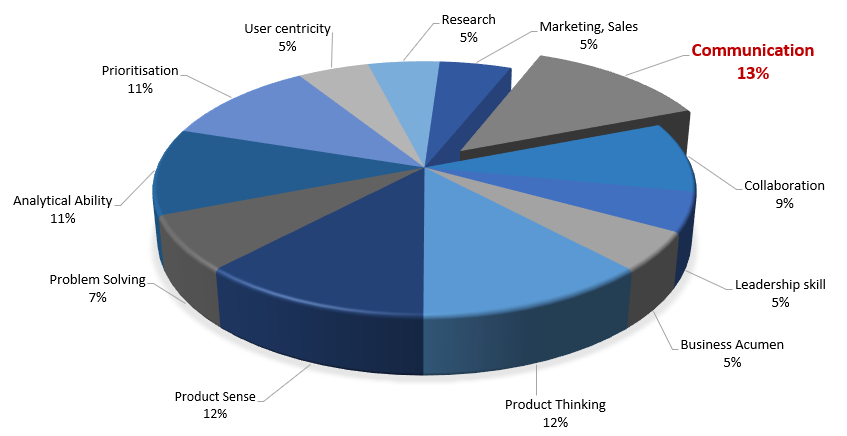The 12 Commandments
Hiring involves subjectively vetting candidatures across a given skillset aligned towards requirements & culture. But, what if it was possible to have a generic framework in there?
Any Questions?
How many times over your interviews have you asked / got asked:
“Alright. Do you have any questions for me?”
And, as an interviewer how many times have you had really relevant and precise questions that make sense to the role you are hiring for, closely oriented to the candidate’s individual profile / purpose he has to fit himself into?
Over a recent recruitment drive while I was hiring for PMs, a candidate asked this question when I threw it to him towards the end:
Do PMs at your organization Code / need to know how to Code?
When the question itself has been doing the rounds for years now and I don't think I am the first person to face this as many people from TECH most of the times carrying a pretty strong background in coding, architecture, development / build who then transition into PM would naturally want to understand if their skills gained from their previous experiences are transferable to this new PM role. But the reality is, that’s representative of just one single dimension.
Talk of someone who understands and is aware of the PM space thoroughly, he may have had totally a different set of questions to pop. Or he would have barely done well to just extend the previous question to represent the entire work embodying a PM's role which is all of these:
Do PMs at your organization Code / need to know how to Code?
Do PMs need to get involved in Research?
Do PMs need a deep understanding of the market, users & needs?
Do PMs need to able to generate great ideas?
Do PMs need to be able know ways to build awareness amongst masses?
Do PMs need to be able to know how to sell product(s)?
In as much as finding a breakthrough into PM looks really tough, the other side of the coin - recruitment / hiring for PMs is way tougher and could look really like an unending journey through a maze.
Is there something, a tool / framework / approach that could address this whole problem and resolve it amicably?
The 12 Commandments!
Often times what would be perceived as a complex problem / a situation has really simple & straight-forward solutions. It is the approach taken that tends to make it look like a cakewalk.
The skills to look for in a candidate who is interviewing for a PM role is deeply subjective and could depend on the type of organization, business vertical they cater to & the team he is going to join, there could still be a sort of a generic framework to test someone on the skills that are deemed to be successful in the role.
I’d like to call it – The 12 Commandments covering the overall skills that anyone who is looking to break into product management / any product-based role should possess and these are some essentials that the interviewers should also make it a point to vet the candidates upon over their conversations.
Here is a PIE-chart with the average weightage assigned to each of the above skills required across many product-based organizations.
As is evident, there is no clear winner as far as one specific skill goes. When Communication could be really crucial for a PM as he would need to portray the role of a binding agent / the glue that gets every team to function around him, the other specific skills representing PM’s job which is Product Thinking, Product Sense, Analytical Ability & Prioritization also are equally essential around which one would influence, motivate & align the teams involved.
NOTE 1: When some orgs may look to omit some of these from the interview process, most of them go by the assumption that the candidates are aware of & carry those skills.
NOTE 2: When this represents the weighted average of the skills across the industry today, they could look completely different when one is referring to a specific type of a product-led organization that’s operating say - in the AC/FI space in the EMEA geography.
Supposing you have to hire for a product-based role, here is a comprehensive look at how to test for each of these skills over an interview.
Also, one can set a timeframe for each question and factor in the time taken for each answer over the table hereunder.
Ok, I know what you are thinking.
How is it that one could ever fit all these 60+ questions into a timeframe of 60 minutes and also have time to incorporate the answers in.
Well, you may have a point, indeed.
So, I highly recommend a laddering approach where-in you start off with one primary question and then look to interrupt the answers intermittently & selectively with few questions if you feel it’s all going off on a tangent and some crucial aspects is not covered in the answer.
Also, it goes without saying that the immediate requirements take precedence.
In as much as one would want to test out someone’s candidature over all these above-mentioned skills there is also an immediate purpose attached that has more to do with the requirement of the team and the void that is created by that someone’s exit which the new recruit is expected to fill over some (x, y, z) skills being his strong points.
In which case, following this approach may be appropriate.
Start with a focus on and stick to those aforementioned skills that you think is a must-have given your case, but also make sure you have some basic coverage over the other necessary skills as well. Because please do bear in mind that you wouldn’t be hiring for a one-off product exercise & you would want give someone enough reason and motivation to stay rooted with your team and organization for a longer term.
Antipatterns
“To be forewarned is to be forearmed!”
So, you have joined a new organization and have been handed the job of building a team and you see how you will have to spend a large portion of your time selecting, shortlisting, interviewing candidates over the coming weeks. Well. Here are some of the most common anti-patterns you need to be aware and warn yourself about and see that you don’t fall prey for any of those.
Spending all time over a Deep-Dive into one topic
Not vetting enough over all the 12 points above
Lost in stories over real-world scenarios
Not judging the Zoom-in / Zoom-out aspect of Communication
Ignoring the analytical / problem solving ability (And I am definitely not referring to puzzles / math problems here)
Not enough testing over tricky prioritization situations
Ignoring how the user centricity aspect is carried & projected top-down
Overlooking Product Sense & Product Thinking aspects
Ignoring UX aspects & the way it is linked to the higher purpose
Hot Tips (For candidates)
Most of them go by the understanding that:
To be able to understand what the interviewer is expecting as an answer and to be able to curtail your answer concisely, is more often than not a luxury, only seasoned people would be able to pull that off.
But the reality is that is totally untrue. There are some simple hacks really. Here are some of them.
1. Crucial pauses & Thinking
It is important to take a step back and pause for a few seconds (Ideally 5-10 seconds & not more than 15 seconds) compose yourself and structure the answer in your head / jot it down on a notepad if you want to. That would give you enough time to frame it all properly.
Also, by doing that you sending a very strong message to the interviewer that you are indeed thinking enough about the whole thing before jumping straight into answering.
NOTE: This trait you’d understand over a period of time is very crucial for the PM role as well because of the complexity and all the angles you’d need to cover before committing over a course / direction to someone.
2. Summarize the question & Re-affirm
One of the best approaches would be to first reaffirm the question and what you understood via:
“Ok, let me get this straight. You want to know…. <….>”
(OR)
“Ok, if I am to understand your question… what you want to know is <…..>”
And then, intermittently ask questions like:
“Am I progressing on the right track?”
just to confirm whether the course you are taking is suited to the expectations. It would also be greatly welcome so that you don’t waste each other’s time too much.
You should then be able to alter the course of your answer in between incorporating the directional change proposed by the interviewer.
3. Break it down into parts
Continuing from the previous point you’d say, “Ok. Got that” and then think a bit about how you’re going to section out your answer covering various aspects.
So, you could say:
“what I’ll do is I’ll cover the answer over these 3 main headers / sections whilst explaining them over some length”
Section 1 - <name>
Section 2 - <name>
Section 3 - <name>
Then ask:
“Sounds good? / How does that sound?”
Also make sure you add the crucial:
Feel free to stop me anytime if you think am going too deep.
4. Sniff, sniff & sniff
At the end of the day, we’re all flesh & blood - human.
Irrespective of how one tries to hide enthusiasm, it oozes out in some way or the other. You could actively keep a tab on and look for those crucial signals as well.
So, supposing you get asked a scenario type question like:
Tell me about an instance where you communicated to a team member as to how his idea was not being implemented in spite of the fact that you thought that it was awesome.
As and when you answer the question if he has the video on, you could carefully observe for some kind of enthusiasm, or a smile / a grin in some cases, or just a slight nod of the head in some cases, a raise of the eyebrows in some cases. These could mostly be related to approval / appreciation.
Whereas, the lack of change of expression, change of tone & pitch from lower to higher levels could be a sign of displeasure / disagreement.












